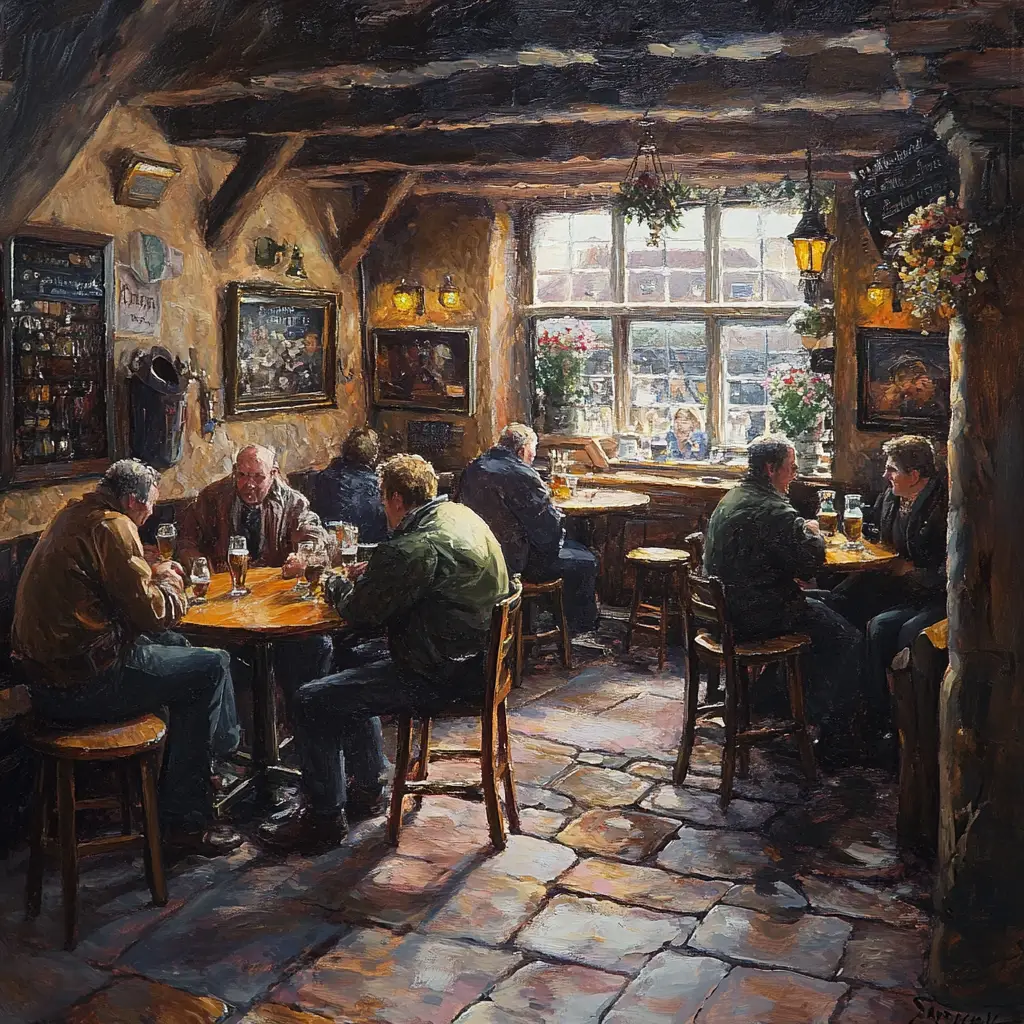Wetherspoons, a well-known chain of pubs in the UK, has been a staple of British pub culture since its founding in the 1970s. Over the years, the company has become recognised for its affordable prices, extensive menu options, and prominent role in shaping modern pub culture across the UK. Recently, Wetherspoons made headlines by announcing the decision to stop selling San Miguel beer due to the soaring cost of a pint. This article explores the history, growth, and cultural significance of Wetherspoons, as well as its latest developments.
Founding and Early Years
Wetherspoons was founded in 1979 by Tim Martin, who opened the first pub in Muswell Hill, North London. Initially called Martin’s Free House, the pub operated with a unique focus on keeping prices low and providing a relaxed, traditional pub environment. Martin soon adopted the name “JD Wetherspoon” after one of his teachers, choosing it to represent the friendly, unpretentious atmosphere he wanted his pubs to embody.
By the early 1980s, Wetherspoons had already gained a reputation for its budget-friendly approach, drawing in customers who appreciated the lower prices compared to other pubs. This success led to gradual expansion, with new Wetherspoons pubs opening across London and, eventually, throughout the rest of the UK.
Expansion and Growth Across the UK
In the 1990s and early 2000s, Wetherspoons saw a period of rapid expansion, opening new locations across the UK, including major cities and small towns. Wetherspoons pubs became popular for their spacious settings, distinctive interior designs, and emphasis on historical architecture—many of its pubs were repurposed from old theatres, banks, and other notable buildings.
Throughout this time, Wetherspoons pioneered new practices in the pub industry, such as implementing non-smoking sections before the nationwide smoking ban in 2007 and expanding food menus to include breakfast and all-day dining options. These changes helped the chain appeal to a wider range of customers, from students and families to professionals and retirees, creating a new kind of British pub experience.
Affordability and “No Music” Policy
One of the defining features of Wetherspoons has always been its commitment to affordability. Tim Martin famously chose to keep prices low on both food and drink, focusing on high turnover and volume rather than high prices. This strategy proved successful, and Wetherspoons became known as a place where customers could enjoy a drink or meal without breaking the bank.
Another distinctive aspect of Wetherspoons pubs is the “no music” policy. Martin believed that customers should be able to enjoy conversation without loud music, fostering a more relaxed and social environment. Although this policy has occasionally been relaxed in some locations, it remains a key part of the Wetherspoons identity and appeal.
Wetherspoons’ Impact on Pub Culture
Wetherspoons has had a significant impact on British pub culture, shaping how people perceive and experience pubs in the UK. By offering a consistent experience across all locations and a broad menu of affordable drinks and meals, Wetherspoons attracted customers who might not have frequented traditional, independently owned pubs. While some criticise the chain for its “cookie-cutter” approach, many others appreciate its reliability and affordability, especially in times of economic uncertainty.
In addition, Wetherspoons’ ability to refurbish and repurpose historic buildings has contributed to the preservation of architectural heritage in many towns and cities across the UK, adding to its appeal among customers who appreciate these unique settings.
Recent Developments: Rising Costs and San Miguel Decision
In recent years, Wetherspoons has faced rising costs for food and drink supplies, partly due to inflation and the impact of Brexit. These financial pressures have influenced the company’s pricing and menu decisions. In November 2024, Wetherspoons announced it would stop selling the popular Spanish beer San Miguel, citing the soaring cost of a pint as the primary reason. This move highlights the challenges Wetherspoons and other pubs face as they navigate economic pressures and work to maintain affordability for customers.
Despite these challenges, Wetherspoons continues to attract a loyal customer base, thanks in part to its affordability, expansive pub network, and efforts to maintain a welcoming environment for all.
Looking Ahead: The Future of Wetherspoons
As Wetherspoons adapts to new economic realities, it may continue to adjust its menu offerings and pricing to manage rising operational costs. The company has expressed a commitment to keeping prices as low as possible while retaining the quality and accessibility that have defined its brand over the years. For many, Wetherspoons remains a staple of British pub culture, and its legacy of affordability and inclusivity will likely continue to resonate with customers across the UK.
Related Questions
Why did Wetherspoons stop selling San Miguel?
Wetherspoons recently stopped selling San Miguel beer due to the rising cost of a pint, which impacted its ability to offer the product at an affordable price.
Who founded Wetherspoons?
Wetherspoons was founded in 1979 by Tim Martin, who opened the first pub in Muswell Hill, North London.
What makes Wetherspoons different from other pubs?
Wetherspoons is known for its low prices, “no music” policy, and commitment to repurposing historic buildings as pubs.




